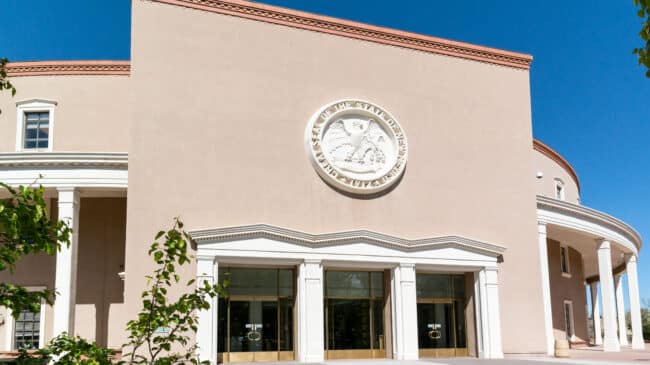A version of this written comment was submitted to the New Mexico House Labor, Veterans’ and Military Affairs Committee on February 18, 2025.
We are deeply concerned that House Bill 331 would unconstitutionally usurp the exclusive jurisdiction of the National Labor Relations Board to govern private-sector labor relations. Section 1(c) would require an applicant for a new cannabis license to submit an attestation of intent to enter into a labor peace agreement within 60 days of hiring its tenth employee. Section 1(d) requires a licensee to submit a copy of an executed labor peace agreement to regulators within six months of hiring its tenth employee. Section 1(e) instructs regulators to deny the renewal of any license where the licensee employs ten or more people and has not entered into a labor peace agreement. Section 1(g) clarifies that the intent of these requirements is to facilitate communication between a labor organization and a cannabis licensee’s employees.
Under the federal National Labor Relations Act, as amended, employers already may not interfere with communications between a labor organization and employees. The Supremacy Clause to the U.S. Constitution elevates federal law above state and local laws that may be in conflict, and federal law reserves to the National Labor Relations Board the sole authority to regulate private-sector labor relations. The New Mexico Cannabis Control Division has no appropriate role nor jurisdiction in determining whether applicants for licensure have complied with provisions of the National Labor Relations Act.
Further, to the extent the New Mexico Cannabis Control Division would require an applicant to enter into a labor peace agreement as a condition of licensure, the agency would run afoul of relevant federal court precedents. The U.S. Supreme Court ruled in 1987 that the City of Los Angeles could not withhold the license of a taxicab company (a privileged license type similar to those for cannabis) based solely on the condition that the company resolve a labor dispute. The city’s regulation of private-sector labor disputes, noted the Court, was preempted by the National Labor Relations Board’s authority. Therefore, no privileged license can be conditioned on a labor peace agreement. Similarly, a federal Court of Appeals ruled in 2005 that a provision in Wisconsin that would have required contractors with local governments to enter a labor peace agreement ran afoul of the National Labor Relations Act.
Proponents will likely point to a similar provision within California’s cannabis licensing scheme to support the new proposed rule. California’s rules require a marijuana licensee with more than 20 employees to enter a labor peace agreement. Many legal scholars expect the California rule to eventually be struck down as violating the National Labor Relations Act. In the meantime, many licensed cannabis growers in California have avoided the requirement altogether by contracting with farm labor services or otherwise structuring their operations such that no licensed entity exceeds the threshold of 20 direct employees.
We believe federal law is clear on these issues and excludes states from enacting requirements such as those contained in House Bill 331. Even where states enact marijuana laws that may conflict with federal interpretation of the Controlled Substances Act, those states still have no leeway within such laws to simultaneously usurp or violate federal labor law. We are concerned that these actions—which have also been proposed elsewhere—could jeopardize state-regulated cannabis markets overall.

